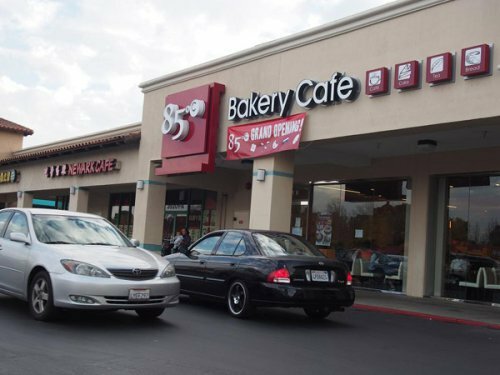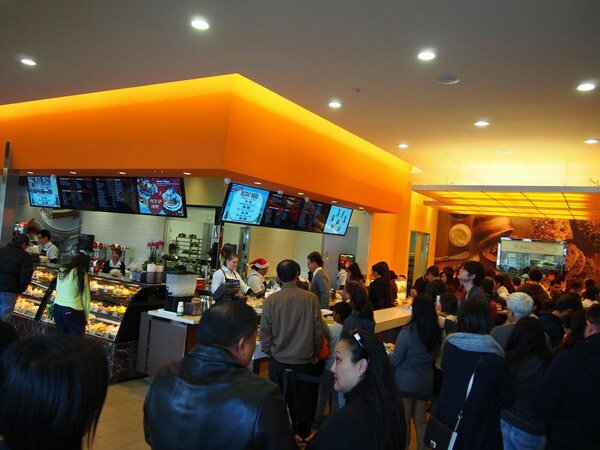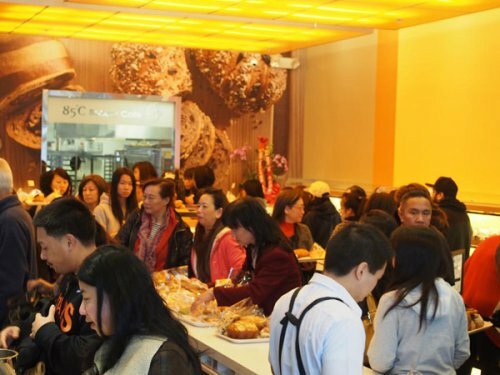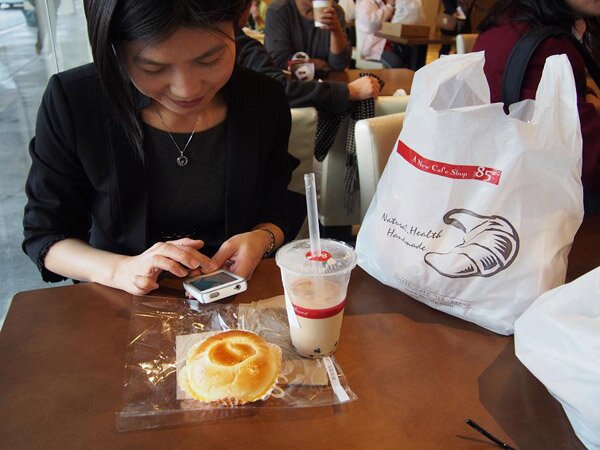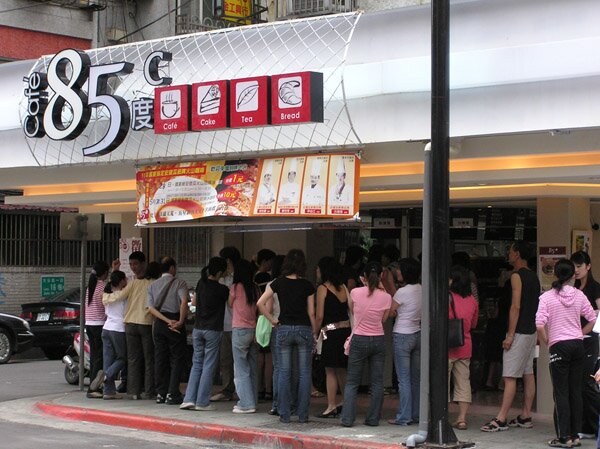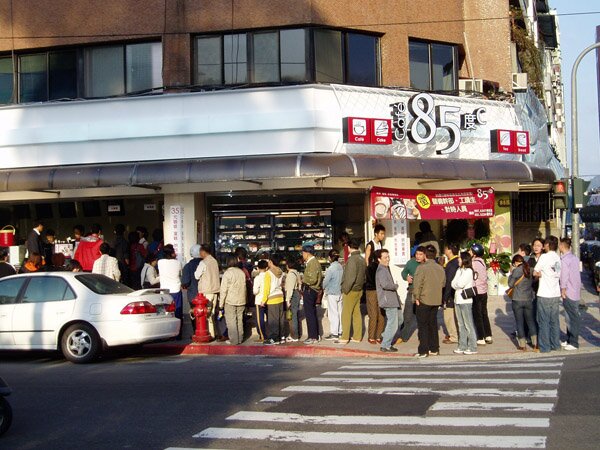While visiting Taiwan with his family this January, Edwin Lee received a telephone call from the San Francisco Board of Supervisors asking him to consider becoming the city’s acting mayor. Lee, whose ancestors are from Guangdong province, China, grew up in San Francisco’s Chinatown, previously worked at the Asian Law Caucus and maintained a sterling reputation while employed in various city departments. Very much a dark horse in the selection process, Lee would eventually agree to become the year-long interim mayor. In the same month, Jean Quan began her tenure as Oakland’s mayor, thereby establishing a strong presence of Chinese American politicians in Northern California’s two largest cities.
A powerful message
“Now we have two leaders from our community who are leading the entire city. That’s a powerful message for young people. It tells them we don’t need to be in the shadows,” said David Lee, the executive director of the Chinese American Voters Education Committee told the San Francisco Chronicle. In the same article, Harry Lim, the former president and current board member of the Chinese Consolidated Benevolent Association, said he believes the two Asian American mayors will help close the centuries-old chasm between the immigrant community and the broader community.
In addition, San Francisco’s top leadership positions are also well represented by elected officials of Asian descent. They include the public defender (Jeff Adachi), the assessor-recorder (Phil Ting) and four of the eleven Board of Supervisors – David Chiu, Carmen Chu, Jane Kim and Eric Ma. In fact, four of the mayoral contenders who are vying to become San Francisco’s next mayor are Chinese Americans.
In the early twentieth century, there were roughly 300,000 overseas Chinese living in the United States. Today, there are about 700,000 ethnic Chinese people living in the Bay Area alone. And with such a large demographic, it is reassuring to see it reflected in the community’s leaders.
While Asians remain underrepresented in politics elsewhere in the United States, this is not the case in the Bay Area. Currently there are seven Taiwanese American elected officials in the Bay Area. Statewide, there are many more. Among the most prominent, is John Chiang, the controller for the State of California. If you happen to live in California and are one of the lucky ones to receive a state tax refund this year, then the check bears John Chiang’s signature
Embracing the difference
Born in New York City in the early 1960s, Chiang spent much of his childhood in a suburb of Chicago. Chiang’s father came in the 1950s for graduate school. Growing up, his parents spoke English to their four children, but a mix of Taiwanese-Japanese-Mandarin to each other. He didn’t even realize they were speaking three languages until his aunt pointed out to him that he was mixing his languages when he spoke.
Chiang’s formative years were spent mainly in a predominately white neighborhood. When asked if he felt discrimination directly, he acknowledged that kids did make fun of him because he looked different. Nevertheless, it should be noted that he must have been a popular student since he was elected the vice-student body president during high school. In comparing the different treatment of his childhood to today, he dwells very much on the positives. “America has made such phenomenal progress. Americans have become more open. As you engage, the walls tumble down. You have people in different mixes and the stereotypes start to disappear.” He mentioned that many of his friends’ children and his own godchildren are mixed-race and concluded, “We have different heritages, and we should embrace our differences for our benefit.”
Like most Taiwanese families, his parents placed a great deal of importance on education. In the Chiang household, “Studying always came first.” While other kids were out playing, the Chiang kids were expected to complete their studies and music practice, even if it took five hours. He would go on to study finance at the University of South Florida and continue on to receive a law degree from Georgetown University.
As one of the highest ranking politicians of Asian descent, Chiang spoke of the challenges of representing the interests of 38 million people. In pushing public policies, he added, one of the difficulties of his job is getting his message out without it being distorted. He does not mind the disagreements or differing views, but has little respect for dishonesty.
Getting a seat at the table
In 1976, Taiwan-born Kansen Chu arrived in the United States to go to graduate school. He received his master’s degree in electrical engineering from Cal State Northridge and started working for IBM in 1978. He also opened up a large Chinese restaurant. Through his restaurant, he hosted many community events, becoming acquainted with various local leaders. However, he credits his interest in public service with his involvement in the Organization of Chinese Americans (OCA), an advocacy group which works on elevating the political influences of Chinese Americans. Chu would eventually serve as the president for the Silicon Valley chapter of the OCA.
In an effort to get Chinese Americans more involved in politics, the OCA began to lobby for a Chinese-English ballot. Although San Jose had bi-lingual ballots, they were only available in Spanish and Vietnamese at that time. “During these activities, it started to dawn on me on the importance of Asians to be involved.” It’s difficult to play a part in the decision making process when you’re outside the room. “If you are in the room, you could make policies to affect other people. Getting a seat at the table is not only important for us, but also for our children,” Chu said.
Chu attributed the OCA for broadening his view of Chinese American issues. In particular, he spoke of his work to preserve the local Chinese American legacy, in part sparked by the events in the late 70s and early 80s. During that time, some Chinese artifacts were discovered at the construction site of the Fairmont San Jose Hotel. As it turned out, several generations ago, the site was home to a Chinatown before it was burned down. He would find out that San Jose has had five previous Chinatowns, each one burnt down, and not necessarily as a result of accidents. In order to commemorate the site, Chu and the Chinese Historical and Cultural Project began raising money to rebuild a temple that once stood there. The result was the Five God/Goddess Temple, combining the gods and goddess of the early immigrants.
In talking about the hurdles faced by his office, he mentioned the budgetary concerns in re-negotiation with 11 different unions and 7,000 city workers. In speaking about the under-funded healthcare system in particular, he said, “Healthcare was so cheap, so everyone could have it. In the old days, they never asked the retirees to contribute to their healthcare after retirement.” This is no longer the case, Chu said. The skyrocketing realities of the past five to ten years have hurt both sides, current and past employees. Among the 11 council members who represent San Jose, Chu said, “We have different beliefs and priorities. We are just trying to find the common areas.”
We know how to study hard
Only a few miles away from San Jose is Cupertino. According to the 2010 census, Cupertino’s population is almost two-thirds Asian and Councilwoman Kris Wang is definitely a reflection of the people living in her city. Wang came from Taiwan to the United States for graduate school, eventually earning an MBA and concentrated her graduate study in computer science. Being more outgoing and vocal by nature, she is the antithesis of the quiet, soft-spoken Asians often seen in the Silicon Valley meeting rooms. While working in the private sector, she would see many Chinese engineers, but the managers were usually white. As someone not afraid to take the lead, it eventually put her on the management track, becoming a senior manager before she transferred her energies to the public sector.
In 2003, Cupertino Mayor Michael Chang’s term in office was coming to an end, and all eyes turned to Wang to replace him. She was asked to consider a bid for his city council seat, but she was initially hesitant, not wanting to be in “politics” with already so many other commitments. She would eventually run and win, continuing on to be re-elected again in 2007. During her terms, she would also serve as the city’s vice-mayor in 2006 and its mayor in 2007 and 2010, elected there by her peers on the city council.
Initially, adjusting to leading such a public life was difficult and she thought of throwing in the towel. Instead, she redoubled her efforts, applying herself even harder to what she needed to know in order to excel at her new responsibilities. Referring to her slight accent, Wang said, “We may not speak as well, but we know how to study hard.”
In reflecting back, Wang can still recall the feeling of excitement during her inaugural ceremony as Cupertino’s mayor, “I never thought that 27 years later I would stand there… as a mayor in a US city. I knew my dad would be really excited, being a new immigrant from Taiwan.”
Although only a small city, Cupertino has a very stable revenue base with anchor companies such as Apple, Oracle and Hewlett-Packard. With some of the best public schools nationally, the area continues to be popular with parents, especially Taiwanese American parents. When Wang’s son started kindergarten in 1987, Asian students accounted for 22 percent of the school district, now they account for 99 percent.
Even though Wang does not spend much time dwelling on her legacy, she did mention that one of her sons was elected as the student body president during all four years of high school, being only the second student to hold that distinction. One can say that the apple does not fall far from the tree.
Advocating for ourselves without losing our cultural distinction
It is apparent that Chiang, Chu and Wang are excited to work towards making lasting policies that can impact people’s lives for the better. “Everyday, I wake up and figure out how to help people,” Chiang said. “Asian Americans and people of every background have a chance to participate in government.” This is now a global economy, a global world. Chiang believes that their actions cause ripples that extend beyond the United States. And the sense of how Asian Americans succeed is clear in that they have to honor everyone’s opinions.
In applauding how local Chinese American leaders have assimilated into mainstream American society, it is also important to add that their diverse cultural background gives them added dimensions in dealing with public policy issues. As an example, Jack K.C. Chiang, the director general of the Taipei Economic and Cultural Office in San Francisco, noted that California is the first state to legalize acupuncture because of the strong support from ethnic Chinese politicians and their voters. And in the case of banning the sale of shark fins, Chinese American politicians have shown their “dominant influence” on both sides.
During last month’s opening ceremony of the Taiwan Cultural Festival sponsored by the Taiwanese American Federation of Northern California at San Francisco’s Union Square, both Mayor Lee and Supervisor Chiu were present. The mayor spoke to the thousands of spectators telling them of his love of the island’s hot springs, and suggested a booth featuring Taiwan’s hot spring at next year’s festival. Chiu, whose parents emigrated from Taiwan, also told the audience of his high regard for Taiwan.
In talking to Taiwan Insights, Jack Chiang mentioned that California has the country’s largest Chinese American population. There are ethnic Chinese state senators and congress members in the state legislature. And in San Francisco, ethnic Chinese residents account for one third of the city’s population. Chiang hopes ethnic Chinese voters, including Taiwanese Americans, can be united on a future and take a more active role in their community. He added, “I expect there will be an elected ethnic Chinese mayor at the end of this year.”
